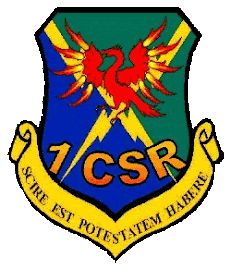
The Texas Public Information Act
A User's Guide to Major Changes Made by the 76th Legislature
* Executive Summary
* New Procedures For Billing May Create Delays
(side bar)
* New Procedures for Records Access
(side bar)
Effective September 1, 1999, changes to the Public Information Act (Government Code Chapter 552) will improve access to records for most people seeking information from state or local government. As a follow-up to our report "Break the Dam: Access to Public Information in Texas," Consumers Union publishes this short guide to the reforms enacted by the 76th Legislature. We also identify some new concerns, and hope that well informed requestors can avoid the potential pitfalls in the revised Act. This guide should not be construed as legal advice, and we recommend that anyone attempting to use the Public Information Act refer directly to the statute or consult a qualified attorney.
New Pitfalls:
"Repetitious or redundant" requests (SB 1851)
Despite opposition from public interest and media organizations, the legislature enacted a new provision in the statute that could delay or limit access to public information, unless requestors know about it and plan ahead. Under new Texas Government Code Chapter 552.232, a governmental body does not have to provide copies of the exact same information more than once.
Under the new provision, if you have asked for and been given access to copies-and you ask for it again-the governmental body may respond with a letter "certifying" that you have already been given access to this information. The governmental body can respond in this way even if you never actually saw the information. This could happen if you request copies, never pick them up, and request them again later. This new provision, purportedly drafted to prevent "harassment" of officials, could be used to limit or deny access to public records.
The "certification" procedure only applies when the same person asks for the information more than once. The government's right to "certify" does not apply to information for which the governmental body has not previously furnished copies. It is unclear what governmental bodies will do with requests where a portion of the information was previously made available but much of the request is new.
To avoid this problem altogether, it is more important than ever to collect the copies you request.
Application of the Public Information Act
You may now review records of certain quasi-governmental entities that were not clearly covered by the Act in the past.
· Certain Houston-Area Property Owners Associations (new 552.0035, HB 3407): A property owners association is subject to the Public Information Act if it is in Harris or an adjacent county, membership is mandatory for certain categories of residents, the association has the power to assess a fee on residents, and the fee is (or has ever been) based on property value.
· Open-enrollment charter schools (amendment to Education Code 12.105(b), HB 211): The education code now specifies that any requirement of the Public Information Act that applies to school districts, school boards, or school children now applies to open-enrollment charter schools.
New Exceptions
Unfortunately, the legislature elected to close access to several types of information formerly available to the public.
· Economic development information (new 552.131, SB 1851): A new exception will allow governmental bodies to keep information confidential if it relates to "a financial or other incentive being offered" to a business prospect or if it relates to a trade secret or commercial or financial information of the business prospect. After an agreement (for tax incentives, utility discounts, land development, etc) is actually made between a governmental body and a company, the details of the financial incentives are public. It is not clear from the statutory language whether information about financial incentives offered but not taken will become public. We believe it will.
· Public Utility Information (new 552.131, SB 7): The electricity deregulation bill created a broad new exception for information that the governing body of a public electric or gas utility "in good faith determines" is related to the utility's competitive activity. This exception applies even if the public utility opts out of competition. The new provision also excepts the text of any resolution of the utility governing body that outlines which issues, activities or matters constitute competitive matters. The attorney general's determination will be limited to (1) whether the governing body acted in good faith, and (2) whether the information sought is reasonably related to a competitive matter. This exception is extremely broad, but the statute also contains a list of items still available to the public and anyone researching a public utility should review this list.
· Information relating to Inmates (new 552.131, HB 1379): This new exception generally closes information related to inmates of the Department of Criminal Justice. However, the breadth of the exception was mitigated by a new provision at 552.029 that lists specific information about inmates that must be released, including inmates names, unit, offense, dates of parole or release, basic information about the death of an inmate in custody, incidents involving the use of force, crimes involving inmates and more.
· Informers against school districts (new 552.131, HB 211): Although the statute previously exempted information that would reveal the identity of an informer, its application outside the criminal investigation context has been unclear. This new exception specifically closes the names of people who inform against a school district for either criminal, civil or regulatory enforcement, unless the person was involved in the illegal activity.
· Officers killed in the line of duty (amended 552.117, SB 1846): Certain personal information about officers killed in the line of duty will no longer be disclosed.
· Crime Victim's Compensation Fund (new 552.132, SB 1851): Crime victims who seek assistance from the Attorney General's crime victim compensation fund will be given the opportunity to elect to keep their name and other identifying information confidential. If a crime victim is actually awarded compensation, the name of the crime victim and the amount of compensation awarded are public.
Improvements to the Act: Narrower Exceptions
The changes to existing exceptions narrow them and fix problems long identified by advocates and citizens trying to get information.
· Audit working papers (552.116, SB 1851): "Draft" audit reports have been confidential under this exception, even if a "final" audit report was never released. Amendments to the audit working papers exception made "draft" audits open.
· Litigation (552.103, SB 1851): The attorney general and members of the public have consistently argued that the litigation exception is not designed to protect from the public anything that a governmental body believes might one day become a subject of litigation. Governmental bodies, however, have used this exception to keep information confidential for months or even years, waiting for some party to file a suit. The statute has now been amended to state clearly that the litigation exception only applies to information related to litigation that is "pending or reasonably anticipated on the date that the requestor applies" for the information.
· Trade secret (552.110, SB 1851): Regulated businesses and the agencies that supervise them have used the trade secret exception to protect a broad range of "commercial or financial" information filed with government. The legislature amended the Act to specify that "commercial or financial" information is only excepted if it is "demonstrated based on specific factual evidence that disclosure would cause substantial competitive harm."
Certain Information
Clearly Public (552.022, SB 1851)
Many have argued over the years that information falling into one of the "Categories of Public Information" (Sec. 552.022) is clearly public. These categories include completed government reports, names of officials, information used to estimate public expenditures, agency procedures, rules, policies, etc. However, the courts allowed governmental bodies to protect even this information if it also appeared to fall under one of the Act's exceptions.
The statute now states that the information listed in the "Categories of Public Information" is public, and not subject to the exceptions in the Public Information Act itself, unless the information is explicitly excepted under another provision of law. For example, a completed report by or for a governmental body is now clearly public, but a "market conduct" report issued by the Texas Department of Insurance remains confidential because a provision of the insurance code explicitly closes this report. The amendments to this section further clarify that a court may not order a governmental body to withhold any of the information in the "Categories of Public Information" unless the information is expressly made confidential under other law.
Some of the key items on this list include:
· administrative staff manuals and instructions to staff that affect members of the public,
· a completed audit, evaluation or investigation made of, for or by a governmental body (except criminal investigation files closed under the law enforcement exception),
· most information relating to accounts, vouchers or contracts for the expenditure of public funds, and
· information used to estimate the need for public funds upon completion of the estimate.
Enforcement
· Mandamus - If a governmental body refuses to provide public information, you may file a writ of mandamus as before. However, the mandamus suit is facilitated in two ways:
1. As noted above, the governmental body may not argue exceptions that it did not first bring to the AG; and
2. Attorney fee provisions are somewhat more friendly to requestors. Under the new statute, a requestor will receive attorney fees unless the governmental body reasonably relied on a decision of the court or an AG opinion when it withheld the information.
· New Complaint Procedure - If you believe a governmental body has violated any provision of the Act you can file a compliant with your local district or county attorney. The district or county attorney must respond to your complaint within 31 days, and tell you whether a violation was committed and an action will be brought. If the local attorney elects not to bring an action, you may take your complaint to the AG.
Costs
For information the governmental body intends to provide you, it may charge for copies as before, but it may also charge for inspection of records where you take no copies if:
1. The governmental body has 16 or more full-time employees; and
2. The information requested is either older than five years or completely fills six or more archival boxes; and
3. The information will take more than five hours to make available for inspection;
Or
1. The governmental body has fewer than 16 full-time employees; and
2. The information requested is either older than three years or completely fills three or more archival boxes; and
3. The information will take more than two hours to make available for inspection.
If only some of the information is older than five years (or older than three years for smaller entities), we believe agencies cannot charge for inspection. The intent of this section was to provide some cost reimbursement for the time governmental bodies spend compiling records that are truly voluminous or in storage due to age. This issue may be clarified when the General Services Commission produces new rules governing charges under this section.
More Information
Consumers Union wants to know how governmental bodies use these new provisions. If you are unable to get information because an official "certifies" that it has already been given to you, or the new requirement that you accept an estimate of charges results in unnecessary delays, or any other provision becomes a problem for you, please give us a call at 512-477-4431, or email us at mitcka@consumer.org.
If you have specific questions related to a request for information, you may call the Open Records Hotline at the Office of the Attorney General at 512-478-6736.
If you wish to speak with an attorney related to an open records request, you may also contact the Freedom of Information Foundation of Texas Legal Hotline at 1-800-580-6651. While these attorneys cannot provide legal advice, they can help you with general information about your rights under the Act based on the facts you present.
Consumers Union Southwest Regional Office, June 1999
Please contact us at: http://www.consumersunion.org/contact.htm
All information ©1998 Consumers Union
!!!!!!!!!!!!!!!!!!!!!!!!!!!!!!!!!!!!!!!!!!!!!!!!!!!!!!!!!!!!!!!!!!!!!!!!!!!!
dselliff@ccisd.us; "king high"
Back to Law & the Media home page
Back to FOI home page
Freedom of Information
Texas Public Information Act
The Texas Open Records Act was revised in the 1995 session of the legislature to include for the first time information stored electronically in computers. At the same time the name of the law was changed to the Texas Public Information Act.
Texas has had an open or public records law since 1973. The law grants access by the public to information held by governmental agencies. Before 1973, such records were not necessarily available.
The issue involving public records is an age-old one. Those who have control over the records want to limit access to them for all kinds of reasons. Citizenry, represented by the news media, believe that government and government records should be open.
It’s a traditional clash with the media taking the lead in reminding government officials that they are in fact public servants and that records do belong to the public. A study by The Dallas Morning News in 1993 revealed that many governmental agencies in the state routinely ignored requests for information covered under the Open Records Act.
The revised Texas Public Information Act begins with this pronouncement:
Under the fundamental philosophy of the American constitutional form of representative government that adheres to the principle that government is the servant and not the master of the people, it is the policy of this state that each person is entitled, unless otherwise expressly provided by law, at all times to complete information about the affairs of government and the official acts of public officials and employees. The people, in delegating authority, do not give their public servants the right to decide what is good for the people to know and what is not good for them to know. The people insist on remaining informed so that they may retain control over the instruments they have created. The provisions of this chapter shall be liberally construed to implement this policy.
This chapter shall be liberally construed in favor of granting a request for information.
—Government Code Chapter 552.
The revised act establishes a fee schedule for state and local governments to use in providing requested public records and a way to request records that are not created or stored by the government agency in the exact format the person requesting the information needs. Features of the new public information law apply to all levels of government in Texas, even local cities and police departments.
As an example, records stored in a typical fashion by an agency may be requested in a more usable format. A procedure for doing that is established in the new law. The agency may charge for providing the information as requested.
A government agency that receives an open records request must provide the information within 10 days unless the agency believes the requested information falls under one of the 26 exemptions to the law. If the agency believes the request falls in that category it must request an attorney general’s opinion.
The attorney general’s office must respond to this request for an opinion within 60 days or the information request will be automatically granted.
The attorney general’s office maintains an Open Government Hotline at 512 478 6736 or toll free at 877 673 6839.
If a person needs help getting information from any governmental agency, including local agencies, a compliance officer is available in the Open Records Division of the General Services Commission in Austin. The telephone number is 512 475 2497. Most recently the person in charge has been Hadassah Schloss. The office e-mail address is public.info@gsc.state.tx.us. Ms. Schloss’ e-mail address is hadassah.schloss@gsc.state.tx.us.
The Texas Public Information Act does not require the release of information contained in records of an educational agency or institution. In a 1996 case, the 14th Court of Appeals ruled that the Klein Independent School District must release information to the parents of a student in the district.
Law Enforcement Information
One of the ongoing controversies has to do with information compiled by law enforcement agencies. Once upon a time, such reports were normally available to the press, although the access was not required by law.
A section in the Public Information Act exempts information held by law enforcement agencies or prosecutors that deals with “the detection, investigation, or prosecution of crime.”
The attorney general’s office has tried to clarify what that means in a series of rulings.
One of the rulings said that law enforcement agencies that followed the practice of providing records before the Open Records Act was passed were not prohibited by the act from continuing that practice. The intention of the legislature was not, the ruling said, “to close to the press sources of information to which it had access under prior agency policies.”
In 1976, the Supreme Court of Texas in an appeal brought by the Houston Chronicle ruled that the front pages of offense reports and administrative reports must be made available.
A ruling by the Supreme Court in Holmes v. Morales in 1996 said that only the most basic facts of closed criminal cases must be divulged. The case was brought by John B. Holmes Jr., the district attorney of Harris County. The ruling permits district attorneys to withhold closed case files from the public.
The Attorney General’s Opinion
In 1999 the attorney general issued an opinion about basic information that must be released by law enforcement agencies.
The information that must be released is:
The name, age, address, race, sex, occupation, alias and physical condition of an arrested person;
The date and time of the arrest;
The offense charged and the court in which it is filed;
The details of an arrest;
Booking information;
The notation of any release or transfer;
Bonding information;
The location of the crime;
The identification and description of the complainant;
The premises involved;
The time of the occurrence of the crime;
The property involved;
The vehicles involved, if any.
A description of the weather;
A detailed description of the offense; and
The names of the arresting and investigating officers.
(OR99-0436)
Texas Public Information Handbook
An excellent book about the Public Information Act is available from the attorney general’s office. It is the Public Information Handbook and it may be obtained by writing the attorney general’s office at Post Office Box 12548, Austin 78711-2548 or by telephone at 512 463 2100.
The attorney general’s web site is www.oag.state.tx.us.
Freedom of Information Foundation of Texas
Since 1978, the Freedom of Information Foundation of Texas has been a force for open government in the state.
The foundation was begun with a grant from the Belo Foundation, and it has been supported through the years by a host of media companies, law firms and individuals.
The foundation operates with a board of directors and an advisory council.
The foundation publishes a Texas Freedom of Information Handbook. It publishes a quarterly newsletter. It has an annual meeting and sponsors ongoing educational programs.
The foundation’s web site is www.foift.org. Inquiries may be made by e-mail at foift@airmail.net. The telephone number is 214 977 6658.
The foundation operates an FOI hotline 24 hours a day at 1 800 580 6651.










August 2, 2007
kingalonzoalvarezdepineda13 - you are a total hipocrit! You judge others so harshly while doing the very thing you claim you hate. Every morning your SPAM emails jam my computer up at work and I can't get my work done for about 5 - 10 minutes until your crap finishes downloading (kinda like you did with this opinion section). When asked to stop emailing the DMC campus you don't even reply or stop. You think you are so justified in raising a stink- but when others don't want to hear your opinion you cram it in their face anyway. YWith your approach - even if what you are saying is true- no one wants to hear it because it's SO obnoxiously done. You need to get the log out of your own eye.